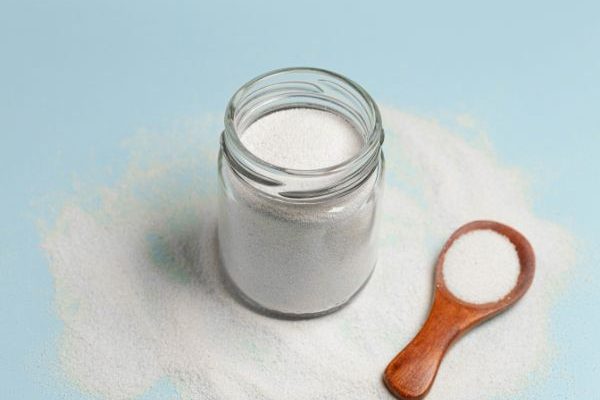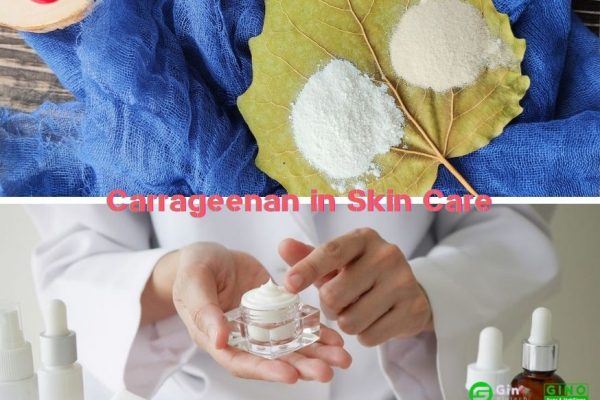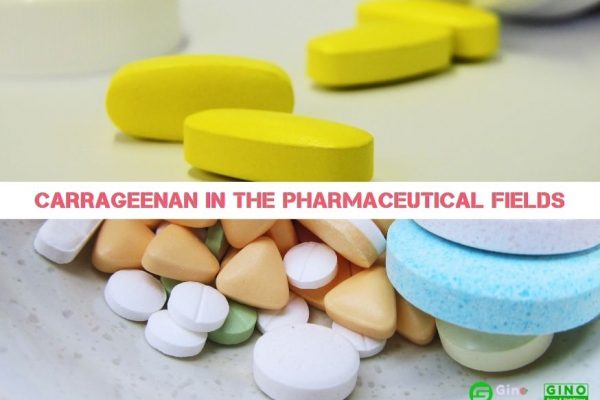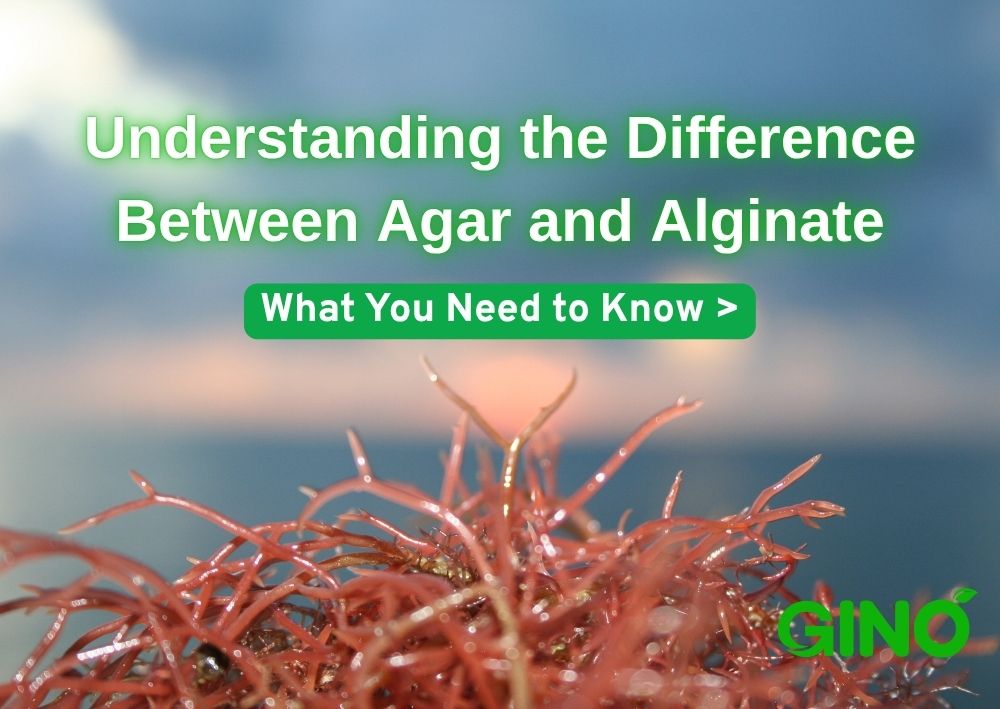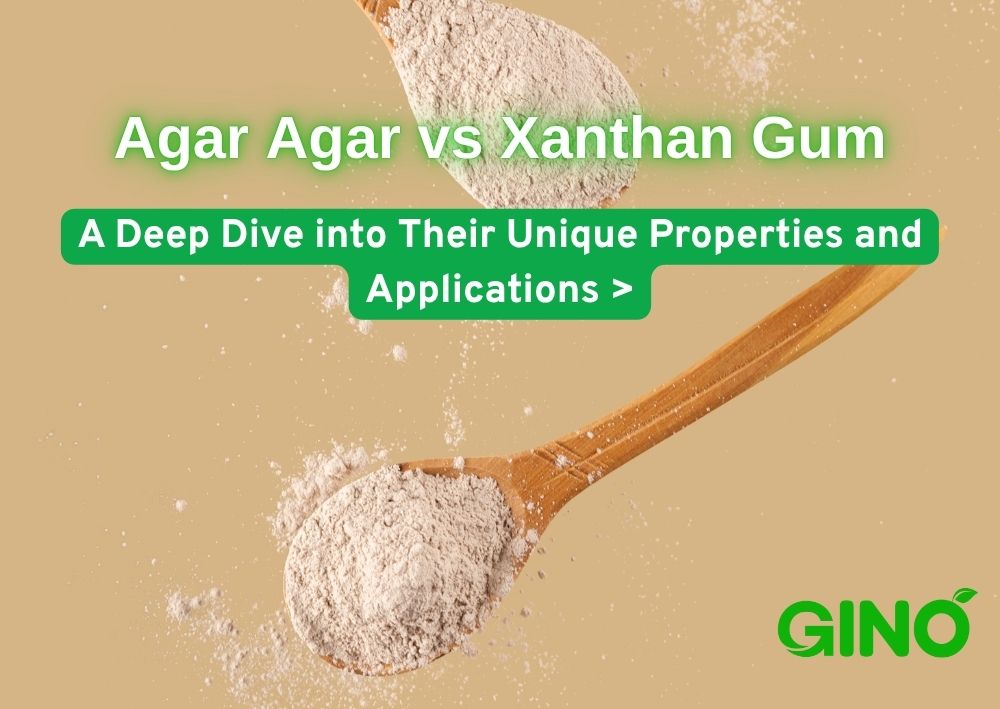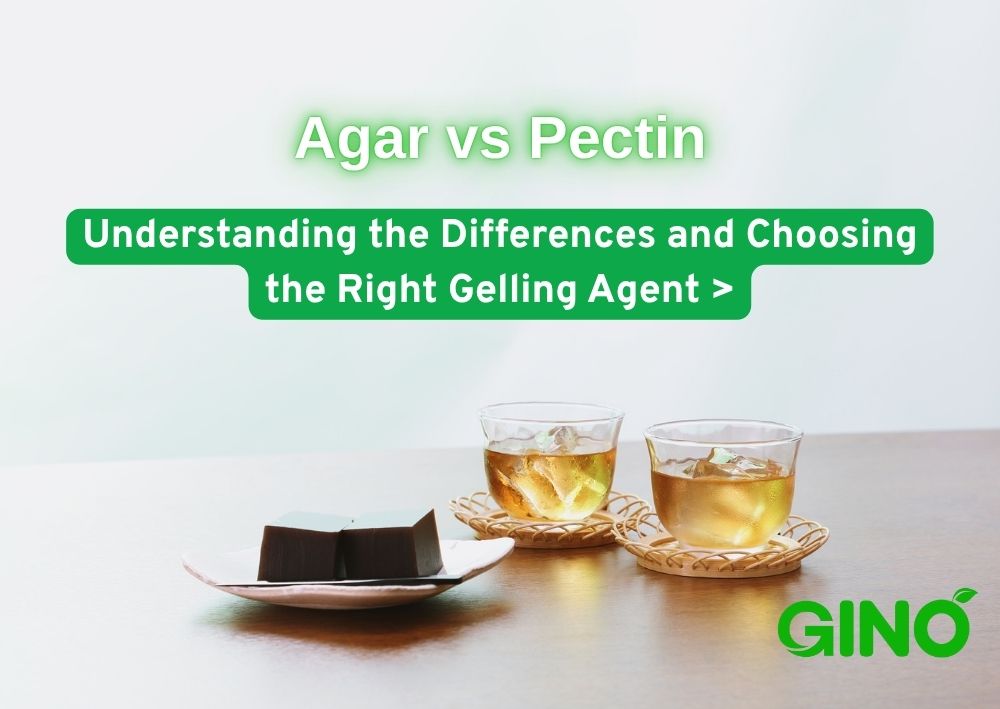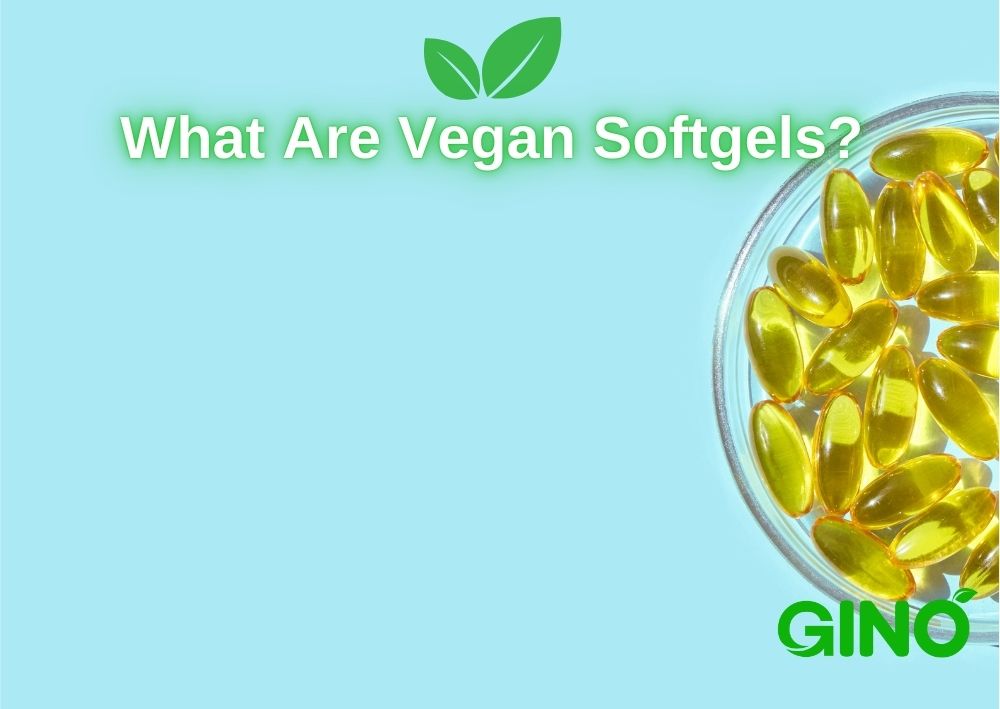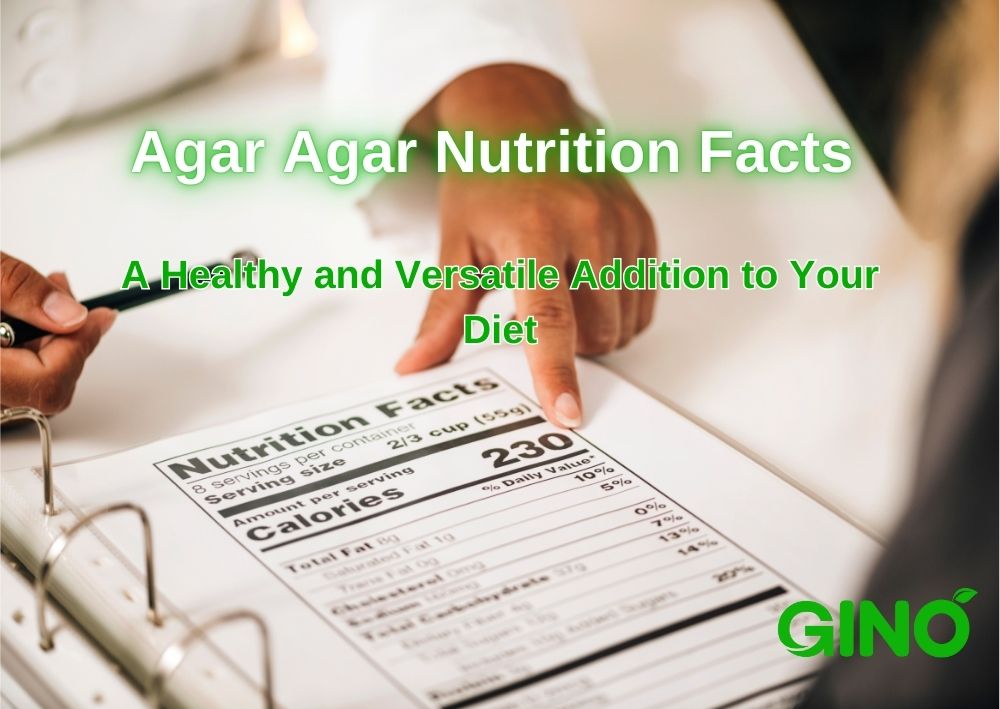What is Carrageenan? A Complete Guide for Your Better Understanding
What is Carrageenan?
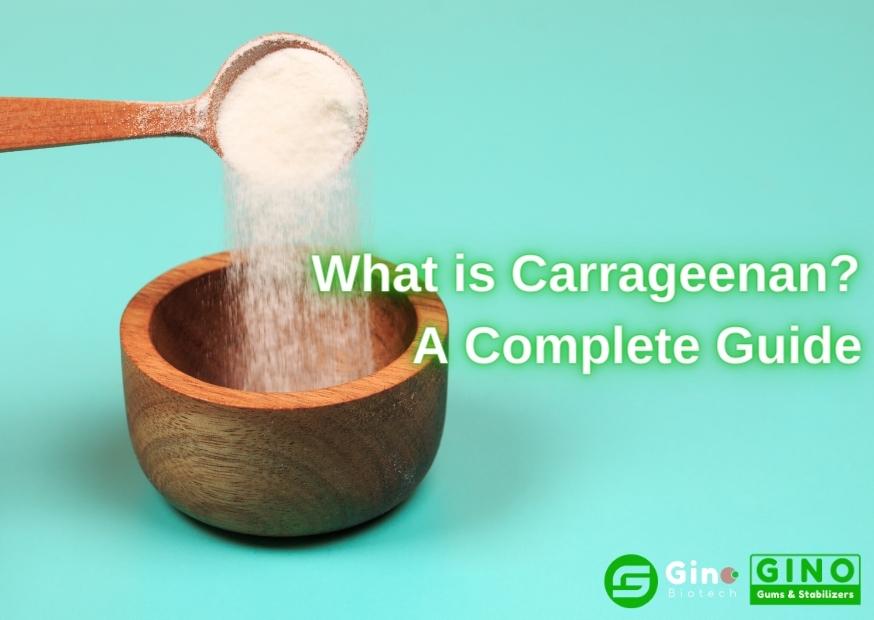
1. What is Carrageenan?
Carrageenan is a type of polysaccharide that is derived from red seaweeds. It is commonly used in the food industry as a thickening, stabilizing, and gelling agent. Carrageenan has a wide range of applications in food, pharmaceuticals, and cosmetics, and it is valued for its ability to improve texture and consistency.

2. The History of Carrageenan
The use of Carrageenan in the food industry dates back to the 15th century when it was used in Ireland and Scotland as a traditional thickener for puddings and jellies.
It was not until the 20th century that carrageenan became popular as a food additive, and since then, it has been widely used in the food industry for its thickening and gelling properties.
3. The Types of Carrageenan
What are the different types of carrageenan? Carrageenan has three main types: Kappa, Iota, and Lambda. Each type has unique properties and applications in the food industry.
- Kappa Carrageenan is the most commonly used type of carrageenan in the food industry. It is commonly used in dairy products such as ice cream and chocolate milk, as well as meat products and sauces.
- Iota Carrageenan is commonly used as a gelling agent in desserts and jelly products. It is also used in dairy products such as yogurt and cheese.
- Lambda Carrageenan is commonly used as a thickening agent in dairy products such as ice cream and cheese. It is also used in salad dressings and sauces.
4. Carrageenan Production and Extraction
What is carrageenan's production process?
Carrageenan is extracted from red seaweeds, which are harvested from the ocean. The most commonly used species of seaweed for carrageenan production are Eucheuma and Gigartina. The seaweed is harvested and washed to remove sand and debris, then dried and ground into a powder.
The powder is then mixed with water and heated to extract the carrageenan. The resulting solution is filtered and purified, then dried and ground into a powder.
5. Carrageenan Uses and Applications
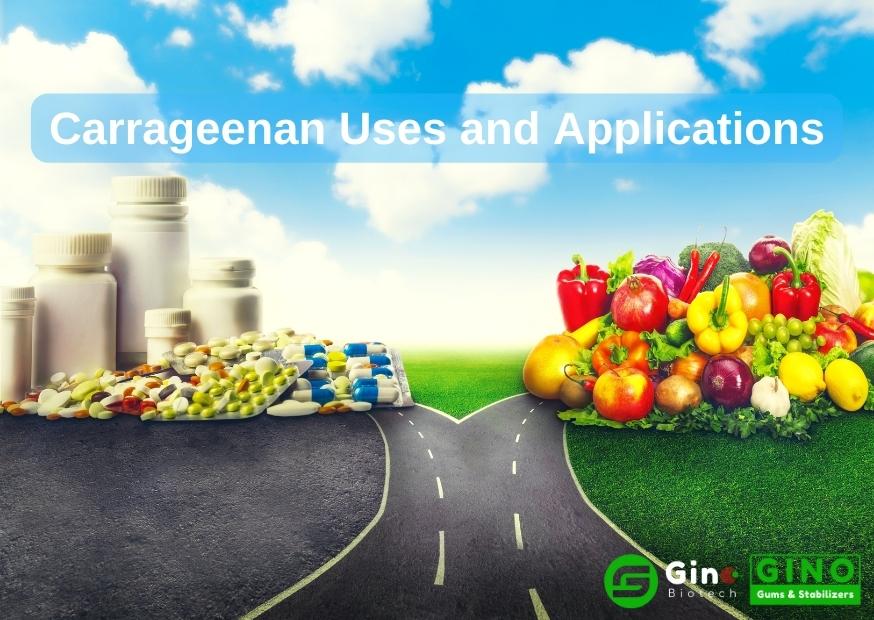
What is Carrageenan used for? Here are some common uses and applications of carrageenan.
- Food Industry: Carrageenan finds its application as a stabilizer, emulsifier, and thickener in numerous food products such as confectionery, dairy products (ice cream, yogurt, cheese), meat products, bakery products, sauces, and beverages.
- Pharmaceuticals: Carrageenan is used as an excipient in pharmaceutical formulations, as it has the ability to improve the texture, stability, and bioavailability of drugs.
- Cosmetics: Carrageenan is used in various cosmetic products, including toothpaste, shampoos, and skin creams, as it has the ability to improve texture, emulsify, and thicken formulations.
- Agriculture: Carrageenan is used as a soil conditioner and plant growth promoter in agriculture. It helps to increase water retention and nutrient availability in the soil, promoting healthier plant growth.
- Biotechnology: Carrageenan is used in biotechnology applications such as tissue engineering and cell culture, as it has the ability to improve the growth and viability of cells.
Overall, carrageenan is a versatile and widely used ingredient with a wide range of applications in various industries.
6. Carrageenan Health Benefits
What are carrageenan's benefits & advantages? Carrageenan has been studied for its potential health benefits, and some research suggests that it may have a positive impact on digestive health, immune system support, and antioxidant properties.

6.1 Digestive Health
Carrageenan has been shown to have prebiotic properties, which means it can promote the growth of beneficial bacteria in the gut. This can help to improve digestive health and may also have a positive impact on overall immune system function.
6.2 Immune System Support
Carrageenan has been shown to have immune-modulating effects, which means it can help to support the immune system. Some studies suggest that carrageenan may possess antiviral and anti-inflammatory properties.
6.3 Antioxidant Properties
Carrageenan contains antioxidant compounds, which can help to protect against oxidative stress and cellular damage. This may have a positive impact on overall health and well-being.
7. Carrageenan Safety

Despite its potential health benefits, carrageenan has become controversial in recent years due to some studies indicating possible harmful effects on health. Consequently, there is an ongoing debate over its safety in food.
Debates over its safety in food
Some studies have suggested that carrageenan may have harmful effects on health, including gastrointestinal inflammation and cancer. However, many of these studies have been criticized for their methodology and the doses used.
The FDA has deemed carrageenan safe for use in food, and it is included on the agency's list of Generally Recognized as Safe (GRAS) substances. However, some consumer advocacy groups have called for it to be removed from the food supply due to safety concerns.
Studies and research on its effects on health
While there is ongoing debate over the safety of carrageenan in food, there is also ongoing research on its potential health effects. Some studies have suggested that it may have positive impacts on digestive health, immune system function, and antioxidant properties.
More research is needed to fully understand the potential health benefits and risks of carrageenan, and to determine the appropriate dosages for safe and effective use.
8. Conclusion
FAQs

Is carrageenan vegan-friendly?
Yes, carrageenan is derived from seaweed and is considered vegan-friendly.
Is carrageenan safe to consume?
The safety of carrageenan has been debated, but it is generally recognized as safe for use in food by the FDA.
Is carrageenan the same as agar-agar?
No, carrageenan and agar-agar are different substances. While both are derived from seaweed and are used as thickeners and gelling agents, they have different properties and are used for different purposes in food and beverage applications.
What is the difference between degraded and undegraded carrageenan?
Undegraded carrageenan is the form of carrageenan that is commonly used in food and beverage applications. Degraded carrageenan, on the other hand, is a modified form of carrageenan that has been chemically altered and is not approved for use in food.
What foods contain carrageenan?
Carrageenan is found in a wide range of foods, including dairy products like ice cream and yogurt, plant-based milks, processed meats, and even some personal care products like toothpaste.
Can carrageenan be used in cooking and baking?
Yes, carrageenan is frequently utilized as a thickener, stabilizer, and emulsifier in a wide range of food products, such as dressings, sauces, dairy products, and baked goods. It is often used as a replacement for gelatin in vegan recipes.
Should I avoid consuming products that contain carrageenan?
While there is ongoing debate over the safety of carrageenan in food, it is generally recognized as safe by the FDA. However, if you have concerns about consuming carrageenan, it is important to read ingredient labels carefully and choose whole, unprocessed foods whenever possible.
What are the potential health risks of carrageenan?
Some studies have suggested that carrageenan may have harmful effects on health, including gastrointestinal inflammation and cancer. However, the FDA has deemed carrageenan safe for use in food.
How can I avoid consuming carrageenan?
To avoid consuming carrageenan, it is important to read ingredient labels carefully and choose whole, unprocessed foods whenever possible.
Related Articles
Recent Posts

We are a biotech company specializing in the research, development, and commercialization of innovative and technological food additives hydrocolloids Agar Agar, Carrageenan, and Tailor-Made Stabilizer Solutions.
With the extended know-how and experience in the research, application, and use of Hydrocolloids, we could provide one-stop-shop customized solutions perfectly matched to the needs of our customers.
Our products cover the needs of the Meat, Dairy, Bakery, Confectionery, and other industrial sectors.


